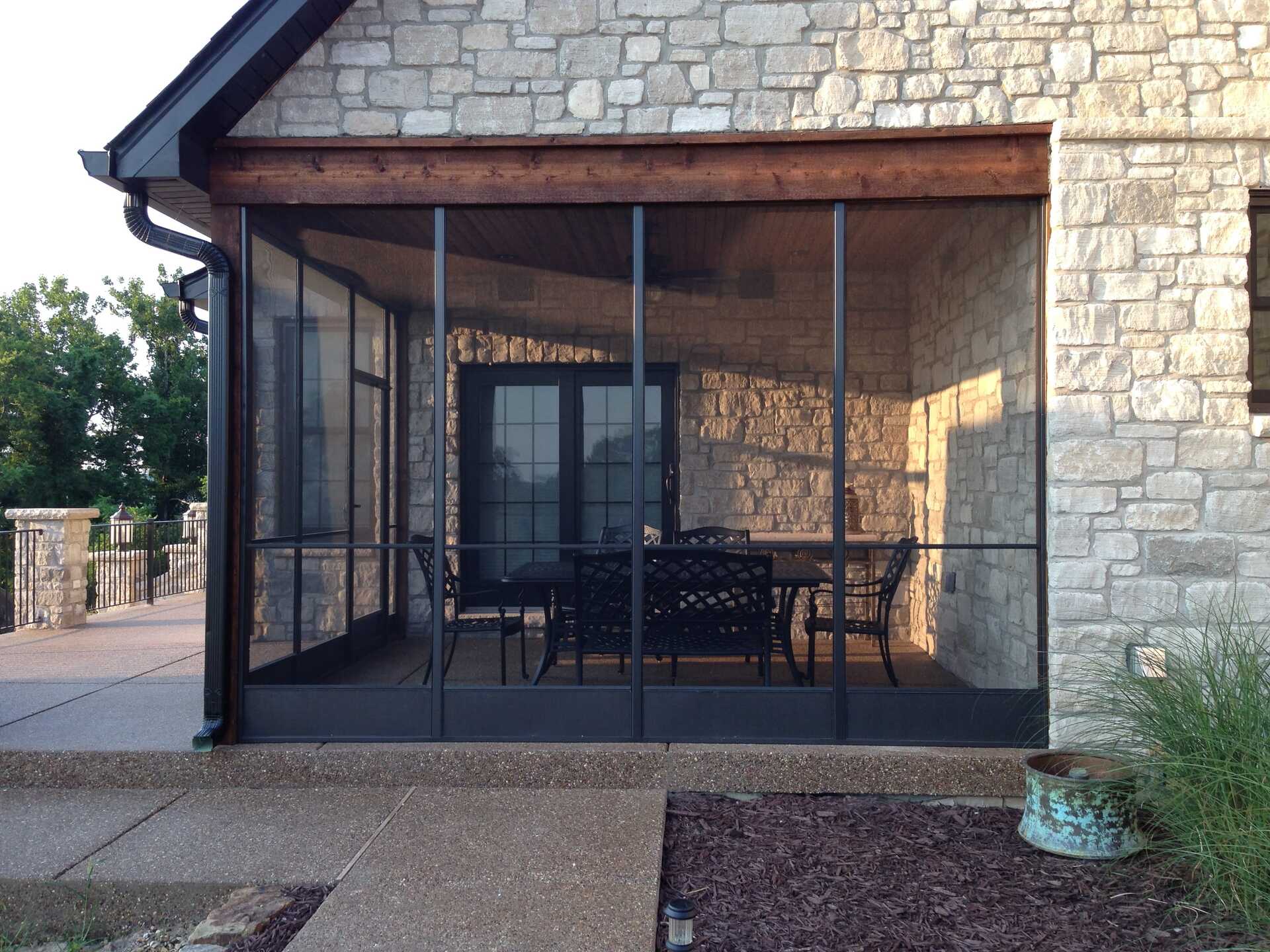

Articles
What Is The Best Screening Material For Porch
Modified: December 7, 2023
Discover the best screening material for your porch with our informative articles. Learn about the pros and cons of different options to make an informed decision.
(Many of the links in this article redirect to a specific reviewed product. Your purchase of these products through affiliate links helps to generate commission for Storables.com, at no extra cost. Learn more)
Introduction
When it comes to designing and constructing a porch, one of the most important decisions you’ll have to make is choosing the right screening material. A porch screen serves multiple purposes, including providing protection from insects and allowing fresh air to circulate while maintaining a sense of privacy. With a wide range of options available, it can be overwhelming to determine the best material for your specific needs.
In this article, we will discuss the factors you should consider when choosing a screening material for your porch, explore popular options, and ultimately guide you to make an informed decision. Whether you’re looking for cost-effective solutions or prioritizing durability, this article will help you find the ideal screening material for your porch.
Key Takeaways:
- Choose a porch screening material based on your specific needs and preferences, considering factors such as cost, durability, visibility, insect protection, and maintenance. Each material offers unique advantages to enhance your porch experience.
- Prioritize durability and insect protection when selecting a porch screening material. Fiberglass, aluminum, copper, stainless steel, and pet-resistant screens each offer distinct benefits to create a comfortable and long-lasting outdoor space.
Read more: What Is A Screened Porch
Factors to Consider When Choosing a Screening Material for Porch
When selecting a screening material for your porch, there are several key factors to consider:
- Cost: Determine your budget and assess the cost-effectiveness of various materials. Some may be more affordable upfront but require more maintenance or have shorter lifespans, while others may have higher initial costs but offer long-term value.
- Durability: Consider the weather conditions in your area and choose a material that can withstand elements like wind, rain, and sun exposure. Opt for materials that are known for their durability and resistance to wear and tear.
- Visibility: Decide how much visibility you want from your porch. Some materials offer clearer views, allowing you to enjoy the surrounding scenery, while others may obstruct the view to some extent.
- Insect Protection: If you live in an area prone to mosquitoes, flies, or other pests, choose a screening material that offers effective insect protection. Look for screens with small mesh openings to prevent insects from entering the porch.
- Maintenance: Consider the amount of maintenance you’re willing to invest in your porch screen. Some materials require routine cleaning, painting, or repairs, while others are low-maintenance and easy to clean.
By carefully considering these factors, you can narrow down your options and choose a screening material that aligns with your preferences and requirements for your porch.
Cost
Cost is often a significant factor when choosing a screening material for your porch. Consider your budget and weigh the initial cost against the long-term value of the material.
Fiberglass screens are one of the most budget-friendly options available. They are affordable and provide good visibility. However, they may not be as durable as other materials and may require more frequent replacements.
Aluminum screens are another cost-effective choice. They are known for their strength and durability, making them resistant to damage. They are also low-maintenance and require minimal upkeep.
Copper screens are a higher-end option in terms of cost. They offer a unique aesthetic with their reddish-brown color that develops a patina over time. Copper screens are highly durable and can withstand harsh weather conditions, making them a long-term investment.
Stainless steel screens are known for their exceptional strength and resistance to corrosion. While they may have a higher upfront cost, they are incredibly durable and have a long lifespan.
Additionally, there are pet-resistant screening materials available, specifically designed to withstand the scratching and clawing of pets. These screens may have a higher upfront cost but can save you money in the long run by avoiding frequent replacements due to pet damage.
It is essential to consider both the initial cost and the long-term investment when choosing a screening material for your porch. While budget is a significant factor, it is also crucial to assess the durability and lifespan of the material to make an informed decision.
Durability
When selecting a screening material for your porch, durability is a crucial factor to consider. You want a material that can withstand the elements and remain in good condition for an extended period.
Fiberglass screens are known for their strength and durability. They are resistant to rust and corrosion, making them suitable for areas with high humidity or near bodies of water. Additionally, fiberglass screens are less likely to dent or tear, making them a reliable option for long-term use.
Aluminum screens are highly durable and can withstand harsh weather conditions. They are resistant to rust and are known for their exceptional strength. Aluminum screens are also lightweight and easy to install, making them a popular choice for many homeowners.
Copper screens are not only visually appealing but also highly durable. They are resistant to corrosion and have a longer lifespan compared to other materials. Over time, copper screens develop a natural patina, adding to their unique charm while maintaining their strength and structural integrity.
Stainless steel screens are considered one of the most durable options available. They are incredibly strong and can withstand heavy impacts without denting or tearing. Stainless steel screens are also resistant to rust and corrosion, making them ideal for areas with high humidity or coastal regions.
Pet-resistant screening materials are specifically designed to withstand the scratching and clawing of pets. These screens are made from durable materials like vinyl-coated polyester, making them resistant to tears and damage caused by pets. They provide peace of mind for pet owners, ensuring that their porch screens remain intact and functional.
When choosing a screening material for your porch, prioritize durability to ensure longevity and resistance to wear and tear. Consider the climate and weather conditions in your area to select a material that is best suited for your specific needs.
Visibility
When considering a screening material for your porch, the level of visibility is an important factor to contemplate. The level of visibility you desire may depend on the surrounding scenery and your personal preference for enjoying the view.
Fiberglass screens offer excellent visibility, allowing you to enjoy the outdoor scenery without obstruction. The fine mesh openings provide a clear view, making fiberglass screens a popular choice for those who want to appreciate their surroundings.
Aluminum screens provide good visibility as well. The thin aluminum frames and mesh allow for adequate airflow while maintaining visibility. While aluminum screens may not be as clear as fiberglass, they still offer a decent view of the outdoors.
Copper screens, with their unique reddish-brown color, may slightly obstruct the view compared to other materials. However, the aesthetic appeal of copper screens can add character and charm to your porch, creating a cozy and inviting atmosphere.
Stainless steel screens offer similar visibility to aluminum screens. The fine mesh openings allow for good ventilation and an unobstructed view of the surroundings. Stainless steel screens are a great option if you value both visibility and durability.
Pet-resistant screening materials are designed to provide both visibility and durability. They offer clear visibility while ensuring that your pets cannot damage the screens with their scratching or clawing.
Considering your preferences for visibility will help you choose a screening material that suits your needs. If enjoying a clear view is a top priority, fiberglass or stainless steel screens may be the best options. However, if you prioritize other factors such as durability or pet-resistance, you may need to compromise slightly on visibility.
Read more: What Is The Best Flooring For Screened Porch
Insect Protection
One of the primary purposes of a porch screen is to provide protection against insects, such as mosquitoes, flies, and other pests. When selecting a screening material for your porch, it is crucial to consider its effectiveness in keeping these unwanted visitors at bay.
Fiberglass screens offer excellent insect protection. The fine mesh openings are small enough to prevent most insects from entering your porch, ensuring a bug-free environment. This makes fiberglass screens a popular choice for those who want to enjoy their porch without the annoyance of buzzing insects.
Aluminum screens also provide effective insect protection. The small openings in the mesh prevent most bugs from entering, keeping your porch free from unwanted pests. Aluminum screens are a reliable choice for those seeking a balance between insect protection, durability, and visibility.
Copper screens, with their distinct reddish-brown color, offer effective insect protection as well. The solid material acts as a barrier, preventing insects from entering your porch. Choosing copper screens can add a touch of elegance to your porch while keeping pesky bugs out.
Stainless steel screens are highly effective in keeping insects at bay. The durable material and small mesh openings create a reliable barrier against pests. Stainless steel screens are an excellent choice for those who want long-lasting insect protection.
Pet-resistant screening materials, while primarily designed to withstand pet damage, also provide insect protection. The durable construction and small openings effectively keep bugs out while ensuring the safety and integrity of the screen from pet claws and scratches.
Prioritizing insect protection ensures that you can enjoy your porch without the intrusion of annoying bugs. When selecting a screening material, consider the mesh size and the material’s ability to keep insects out to create a comfortable and bug-free space.
Maintenance
The level of maintenance required for your porch screening material is an important consideration to factor into your decision-making process. Some materials may require more upkeep, while others are relatively low-maintenance.
Fiberglass screens are generally low-maintenance. They are resistant to rust, corrosion, and staining. Routine cleaning with mild soap and water is usually sufficient to keep them in good condition. However, fiberglass screens may be more prone to tears and may require occasional patching or replacement.
Aluminum screens are also low-maintenance. They are resistant to rust and corrosion and can be easily cleaned with mild soap and water. Over time, aluminum screens may develop a patina, which can add character to your porch.
Copper screens require minimal maintenance. They are naturally resistant to rust and corrosion and do not require regular cleaning. Over time, copper screens develop a beautiful patina that enhances their appearance. If you prefer to maintain the bright and shiny look, occasional cleaning with a copper cleaner will be necessary.
Stainless steel screens are known for their durability and low maintenance. They are resistant to rust, corrosion, and staining. Routine cleaning with mild soap and water is usually sufficient to keep them in good condition.
Pet-resistant screening materials may require more frequent cleaning depending on the activities of your pets. Routine cleaning, especially in areas where your pets frequently scratch or rub against the screen, is recommended to keep the material looking and functioning well.
Considering the level of maintenance you are willing to invest in your porch screening material is essential. If you prefer a low-maintenance option, fiberglass, aluminum, or stainless steel screens may be ideal. However, if you desire a unique aesthetic and don’t mind occasional cleaning, copper screens can add a touch of elegance to your porch.
Consider using fiberglass or aluminum screening material for your porch. These materials are durable, resistant to corrosion, and provide good visibility and airflow.
Popular Screening Materials for Porch
Now that we have explored the factors to consider when choosing a screening material for your porch, let’s take a look at some popular options:
- Fiberglass: Fiberglass screens are a popular choice due to their affordability and good visibility. They are durable, resistant to rust and corrosion, and offer effective insect protection. However, they may require occasional replacements due to their tendency to tear.
- Aluminum: Aluminum screens are known for their durability and low maintenance. They are resistant to rust and corrosion and provide good visibility. Aluminum screens are lightweight, easy to install, and offer effective insect protection.
- Copper: Copper screens are chosen for their unique aesthetic appeal. They develop a beautiful patina over time, adding character to your porch. Copper screens are highly durable, resistant to rust and corrosion, and offer effective insect protection.
- Stainless Steel: Stainless steel screens are renowned for their exceptional strength and durability. They are resistant to rust, corrosion, and stains, making them ideal for high-humidity environments. Stainless steel screens offer good visibility and effective insect protection.
- Pet-Resistant Screening: Pet-resistant screening materials are designed to withstand pet damage while providing effective insect protection. They are typically made from durable materials like vinyl-coated polyester. These screens offer good visibility and ensure your pets cannot damage the screen with their scratching or clawing.
These are just a few of the popular screening materials available for porches. Each material has its own advantages and considerations, so it’s important to evaluate your specific needs and preferences to determine the ideal choice for your porch.
Fiberglass
Fiberglass screens are widely used and preferred by many homeowners for their porch screening needs. These screens have several qualities that make them a popular choice.
One of the primary advantages of fiberglass screens is their affordability. They are typically more budget-friendly compared to other materials, making them an economical option for those on a tight budget. Despite their cost-effectiveness, fiberglass screens still provide good value and performance.
Another benefit of fiberglass screens is their visibility. The fine mesh openings allow for a clear view of the surrounding outdoor scenery. This makes fiberglass screens an excellent choice for those who prioritize enjoying the view from their porch while still maintaining a barrier against insects.
Fiberglass screens also offer effective insect protection. The small mesh openings prevent most insects, such as mosquitoes and flies, from entering the porch area. This ensures a bug-free environment, allowing you to relax and enjoy your porch without the annoying presence of pests.
In terms of durability, fiberglass screens are relatively strong and resistant to rust and corrosion. They can withstand regular use and exposure to various weather conditions. However, it’s important to note that fiberglass screens may be more prone to tearing compared to some other materials. Therefore, occasional patching or replacement may be necessary over time.
Maintenance for fiberglass screens is relatively easy. Routine cleaning with mild soap and water is typically sufficient to keep them in good condition. However, it’s important to handle fiberglass screens with care to avoid causing tears or damage during cleaning.
In summary, fiberglass screens offer affordability, good visibility, effective insect protection, and easy maintenance. While they may require occasional replacements due to their tendency to tear, their overall performance and value make them a popular choice for porch screening.
Aluminum
Aluminum screens are a popular choice for porch screening due to their durability and versatility. They offer several advantages that make them a preferred option for many homeowners.
One of the key advantages of aluminum screens is their durability. They are known for their strength and resistance to damage. Aluminum screens can withstand harsh weather conditions without warping or corroding, making them a reliable choice for long-term use.
Aluminum screens are also lightweight, making them easy to install. This makes them a convenient option for DIY projects or for those who want a hassle-free installation process. The lightweight nature of aluminum screens also means they exert less strain on porch structures, prolonging the overall lifespan of the porch itself.
In terms of maintenance, aluminum screens require minimal upkeep. They are resistant to rust and corrosion, reducing the need for frequent cleaning or repainting. Routine cleaning with mild soap and water is usually sufficient to keep aluminum screens in good condition.
Despite their durability, aluminum screens still provide good visibility. The thin aluminum frames and mesh allow for adequate airflow and a clear view of the outdoor scenery. This ensures that you can enjoy your porch while maintaining a barrier against insects.
Speaking of insect protection, aluminum screens offer effective protection against pesky bugs. The small mesh openings prevent most insects from entering your porch, allowing you to relax and enjoy bug-free outdoor time.
Overall, aluminum screens are a reliable and low-maintenance option for porch screening. Their durability, easy installation, and effective insect protection make them a popular choice among homeowners looking for a long-lasting and hassle-free screening material.
Copper
Copper screens are a unique and visually appealing option for porch screening. They offer several advantages that make them a popular choice for homeowners seeking a distinctive look.
One of the primary advantages of copper screens is their aesthetic appeal. The reddish-brown color of copper adds a touch of elegance and sophistication to any porch. Over time, copper screens develop a natural patina, creating a rustic and timeless look that adds character to your outdoor space.
Along with their visual appeal, copper screens are highly durable. They are resistant to rust and corrosion, making them suitable for areas with high humidity or coastal regions. Copper screens can withstand various weather conditions and retain their structural integrity for many years.
In terms of insect protection, copper screens act as an effective barrier against unwanted pests. The solid material prevents most insects from entering your porch, ensuring a bug-free environment where you can relax and enjoy the outdoors without any disturbance.
Maintenance for copper screens is relatively low. They naturally resist corrosion, thereby reducing the need for frequent cleaning. Over time, copper screens develop a patina that adds to their charm. If you prefer to maintain the shiny look, occasional cleaning with a copper cleaner is recommended.
It’s worth noting that copper screens may slightly obstruct the view compared to other materials. However, the aesthetic appeal and durability of copper make it a popular choice for those seeking a unique and eye-catching porch screen.
In summary, copper screens offer a distinct visual appeal, durability, and effective insect protection. If you’re looking to make a statement with your porch screen and appreciate the beauty of copper, this material is an excellent choice for adding elegance and character to your outdoor space.
Stainless Steel
Stainless steel screens are a popular choice for porch screening due to their exceptional strength, durability, and versatility. They offer several advantages that make them a reliable option for homeowners.
One of the main advantages of stainless steel screens is their outstanding durability. They are highly resistant to rust, corrosion, and staining, making them suitable for areas with high humidity or coastal regions. Stainless steel screens can withstand the elements and maintain their structural integrity for a long time.
Stainless steel screens are known for their exceptional strength. They can withstand heavy impacts without denting or tearing, making them ideal for areas that experience strong winds or are prone to potential damage.
Despite their durability and strength, stainless steel screens still provide good visibility. The fine mesh openings allow for adequate airflow and an unobstructed view of the surrounding outdoor environment. This ensures that you can enjoy your porch while still maintaining effective insect protection.
Maintenance for stainless steel screens is relatively easy. They require minimal upkeep, with routine cleaning using mild soap and water being sufficient to keep them in good condition. The low-maintenance nature of stainless steel screens makes them a convenient choice for homeowners.
In terms of insect protection, stainless steel screens effectively prevent most bugs from entering the porch. The small mesh openings act as a barrier, keeping insects such as mosquitoes and flies out of the enclosed area. This allows you to enjoy bug-free time on your porch.
Overall, stainless steel screens offer exceptional durability, strength, and effective insect protection. Their low-maintenance nature and clear visibility make them a popular choice among homeowners looking for a reliable and long-lasting porch screening material.
Pet-Resistant Screening
For pet owners, having a porch screen that can withstand the scratching and clawing of pets is essential. Pet-resistant screening materials are specifically designed to provide both durability and effective insect protection while ensuring the safety and integrity of the screen.
These pet-resistant screens are typically made from durable materials, such as vinyl-coated polyester. The unique construction of these screens makes them resistant to tearing and damage caused by pets’ claws and scratching.
One of the primary advantages of pet-resistant screening materials is their ability to withstand pet damage. They are engineered to be highly durable and can withstand repeated contact and scratching, providing a reliable barrier to keep pets safely contained within the porch area.
In addition to the durability factor, pet-resistant screens also offer effective insect protection. The small mesh openings of these screens prevent insects from entering the porch, ensuring a bug-free environment for both you and your pets to enjoy.
Maintenance for pet-resistant screens may require additional attention in areas where pets frequently scratch or rub against the screen. Routine cleaning is recommended to keep the material looking and functioning well. Fortunately, most pet-resistant screens are still relatively easy to clean and maintain.
When choosing a pet-resistant screening material, make sure to consider your specific pet’s behavior and size. Some materials may be more suitable for larger or more active pets, while others may work well for smaller or less energetic pets. It’s important to select a material that can withstand your pet’s activities without compromising the overall integrity of the screen.
In summary, pet-resistant screening materials provide both durability and effective insect protection while ensuring the safety of your pets. They are an excellent choice for pet owners who want to create a secure and comfortable porch environment for both themselves and their furry companions.
Read more: How To Screen In A Porch
Conclusion
Choosing the right screening material for your porch is crucial to creating a comfortable, functional, and aesthetically pleasing outdoor space. By considering factors such as cost, durability, visibility, insect protection, and maintenance, you can make an informed decision that aligns with your needs and preferences.
Fiberglass screens offer affordability, good visibility, and effective insect protection, making them a popular choice for those on a budget. Aluminum screens provide durability, low maintenance, and clear visibility, making them a reliable option for many homeowners. Copper screens offer a unique aesthetic appeal, durability, and insect protection, adding elegance to your porch space. Stainless steel screens are known for their exceptional strength, durability, and low maintenance, making them a reliable and long-lasting choice. Pet-resistant screening materials are designed to withstand pet damage while providing effective insect protection, ensuring the safety of both your pets and your porch screen.
Ultimately, the choice of screening material for your porch depends on your specific needs, preferences, and budget. It’s important to carefully weigh the advantages and considerations of each material to determine which one best suits your requirements.
Remember that maintenance plays a role in the longevity of your porch screen. Regular cleaning and proper care can help extend the lifespan of the material and ensure optimal performance.
In conclusion, selecting the right screening material for your porch involves balancing factors such as cost, durability, visibility, insect protection, and maintenance. By considering these factors and evaluating your specific needs, you can choose a material that enhances your porch experience and provides lasting enjoyment for years to come.
Frequently Asked Questions about What Is The Best Screening Material For Porch
Was this page helpful?
At Storables.com, we guarantee accurate and reliable information. Our content, validated by Expert Board Contributors, is crafted following stringent Editorial Policies. We're committed to providing you with well-researched, expert-backed insights for all your informational needs.
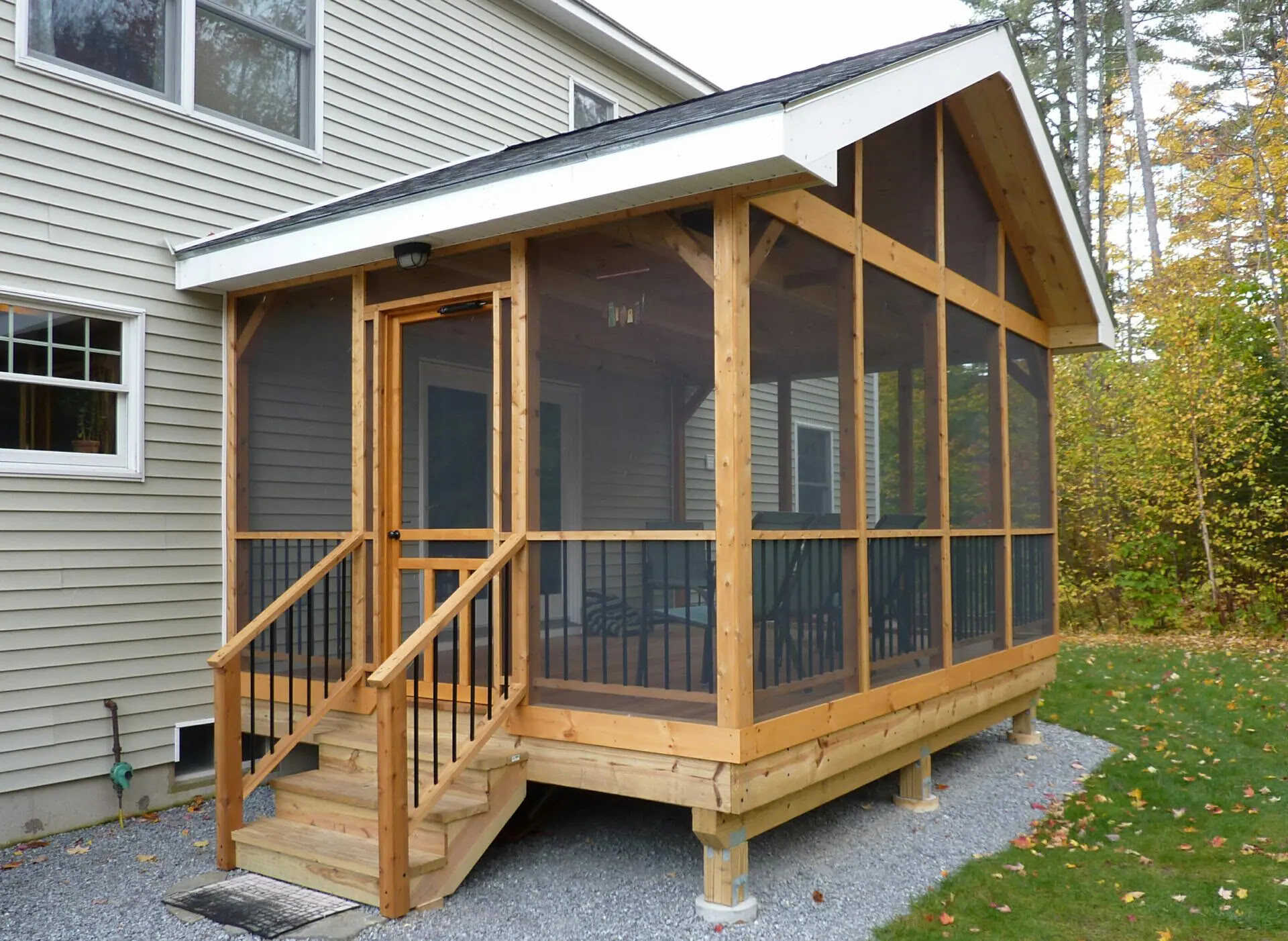
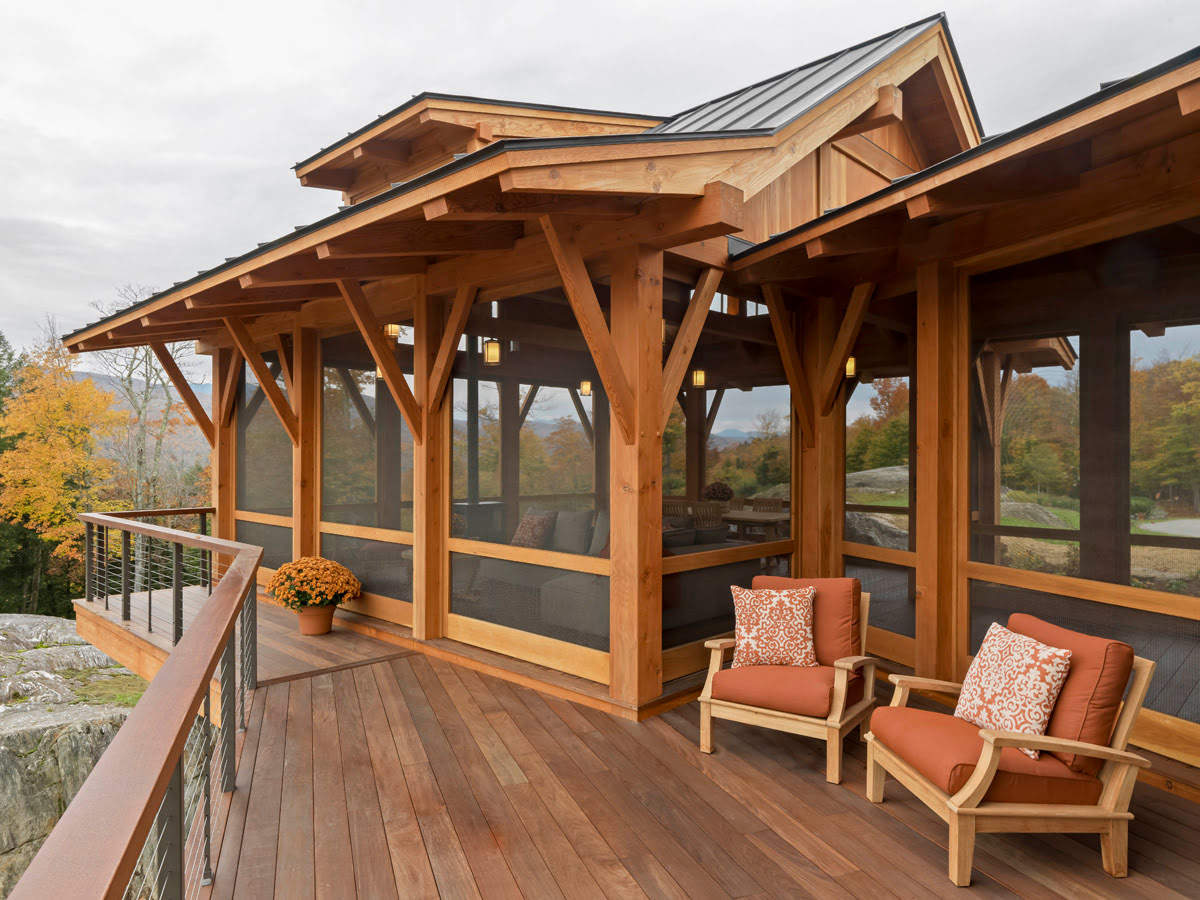
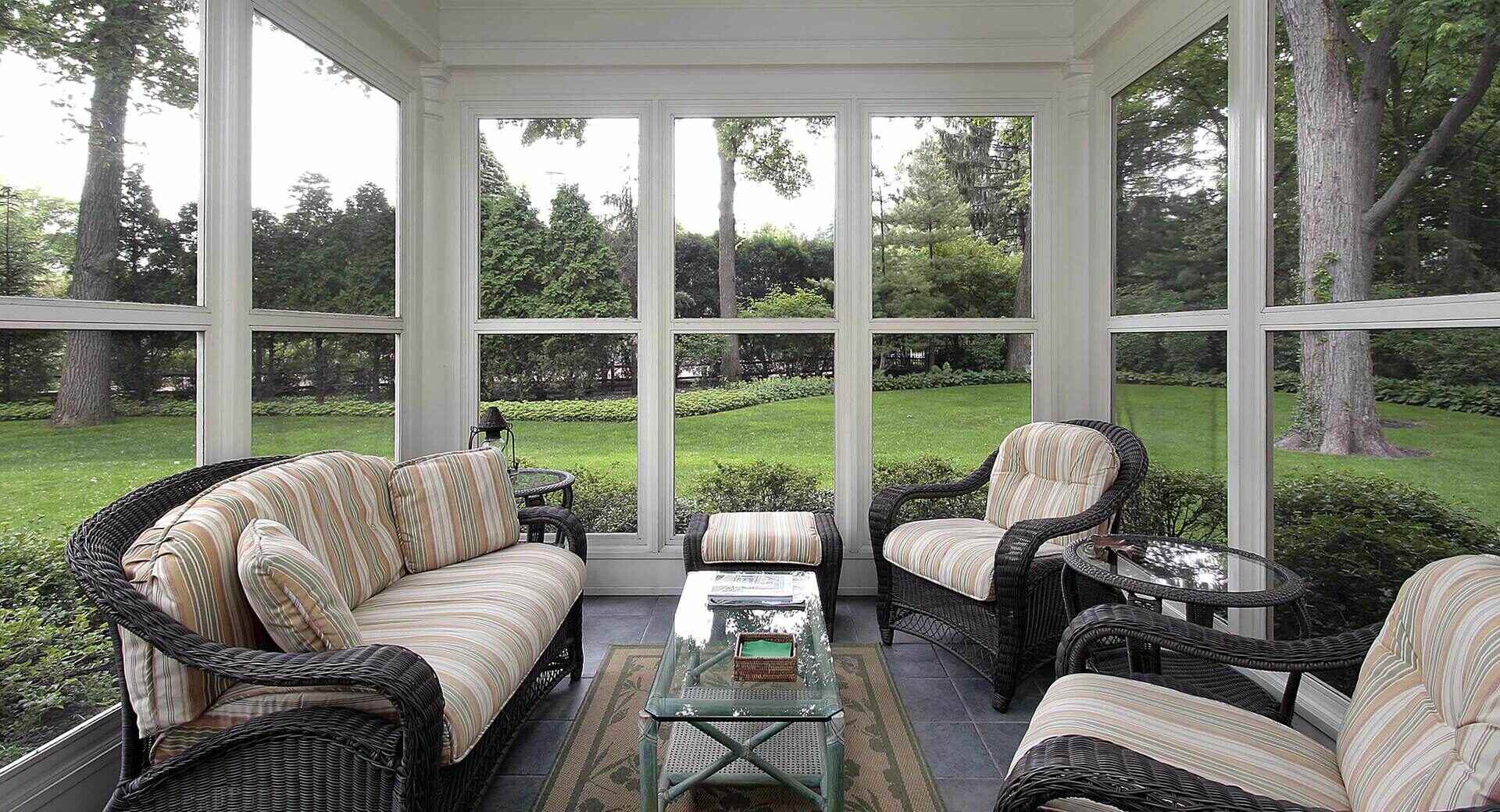
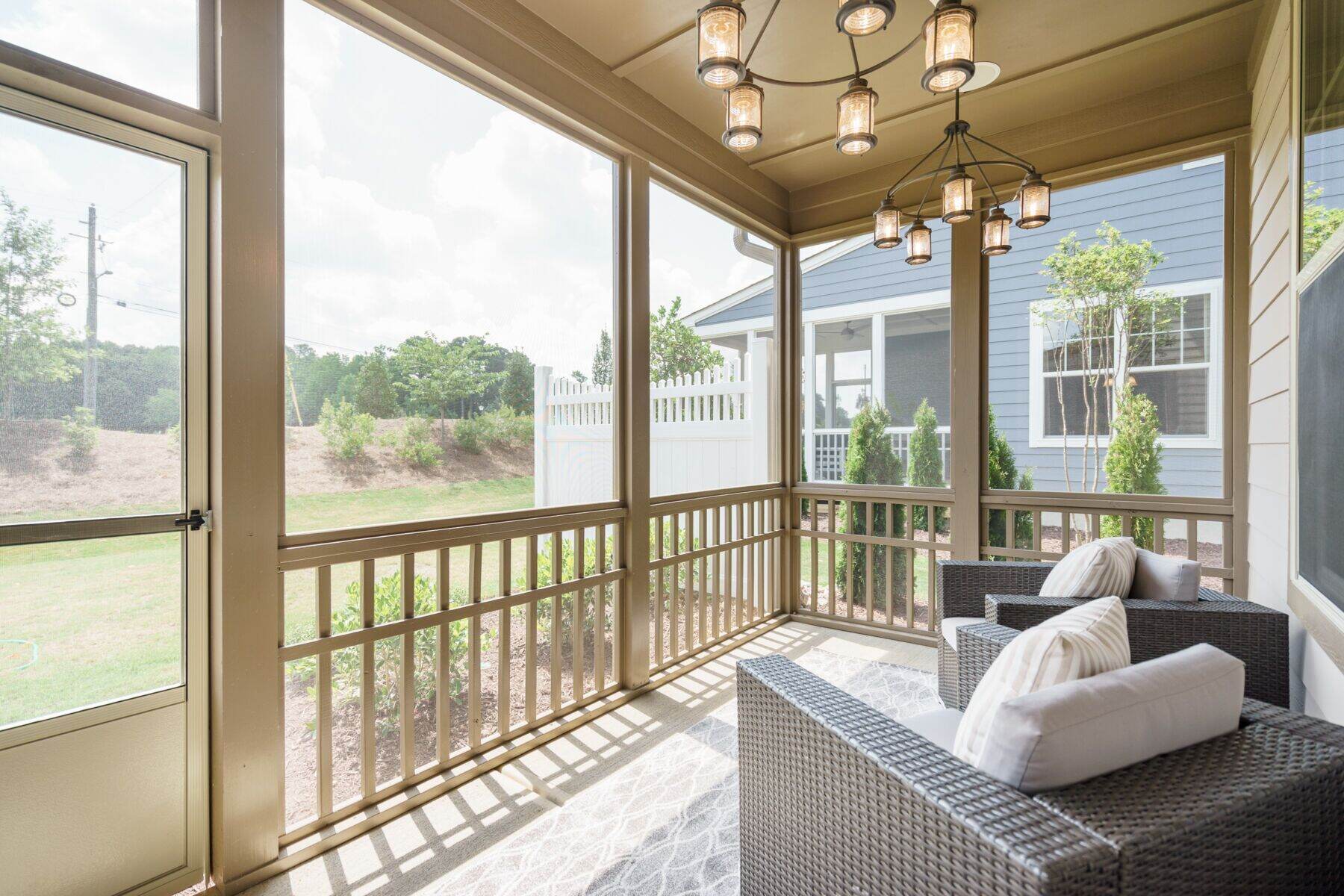
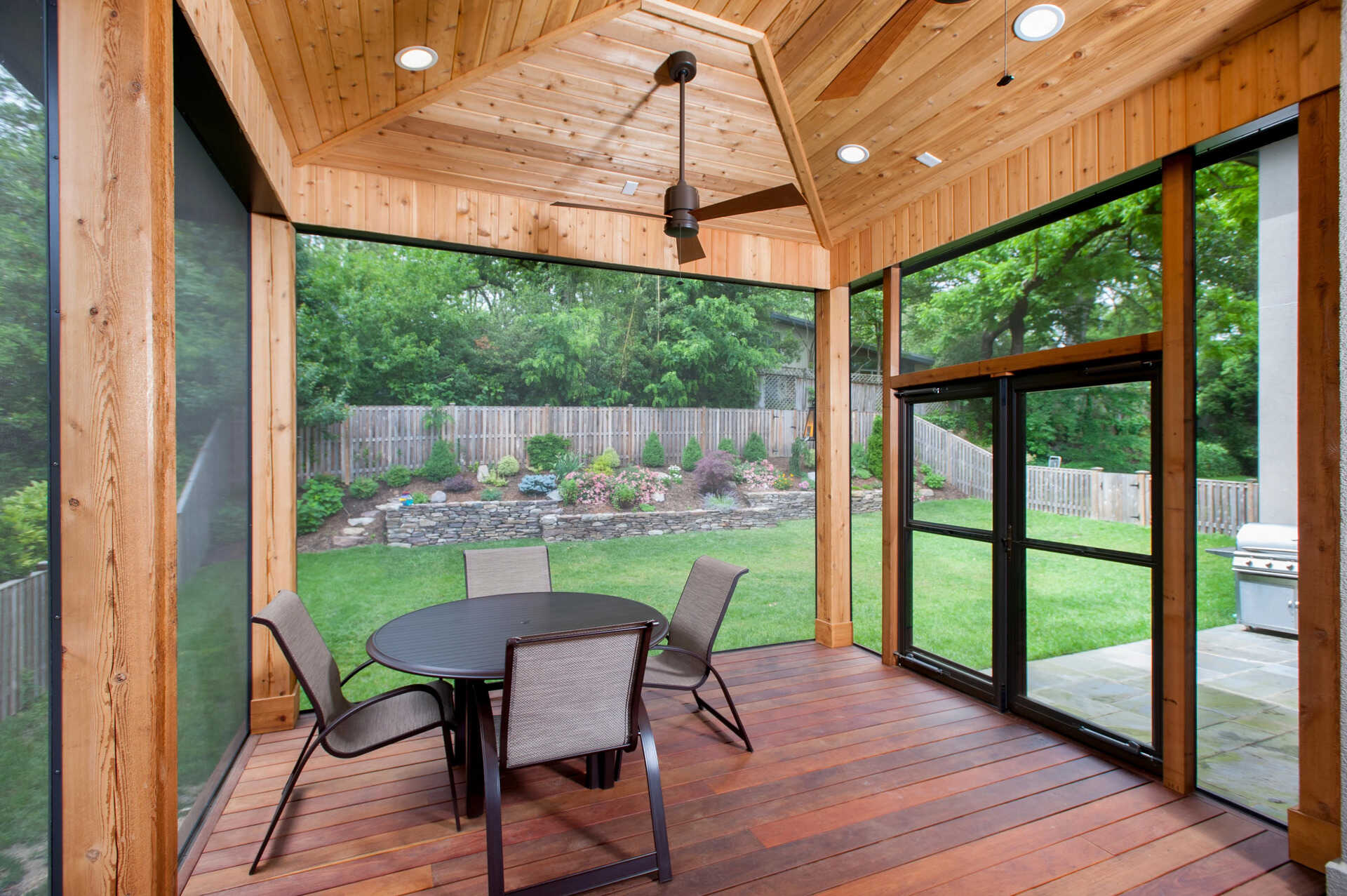
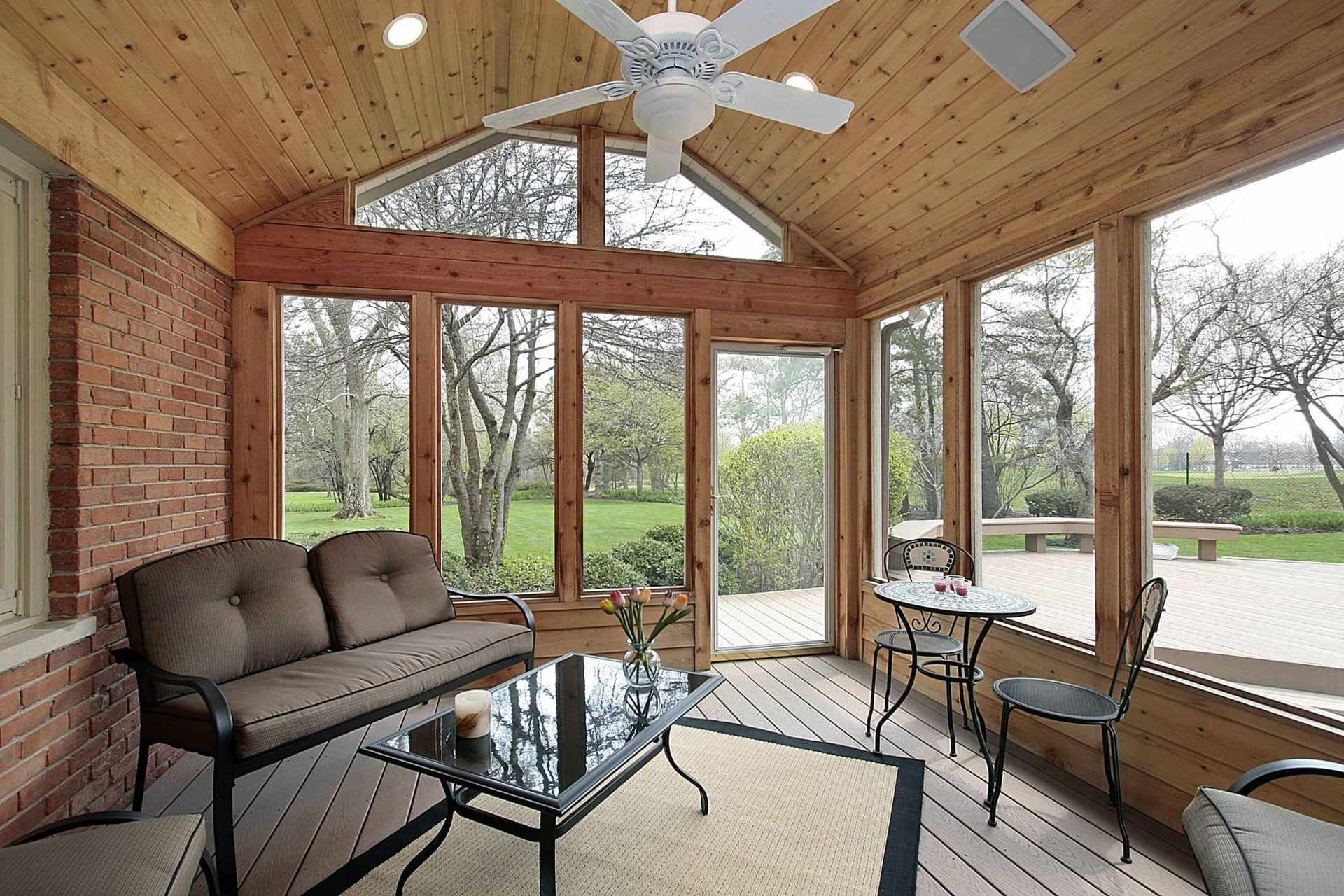
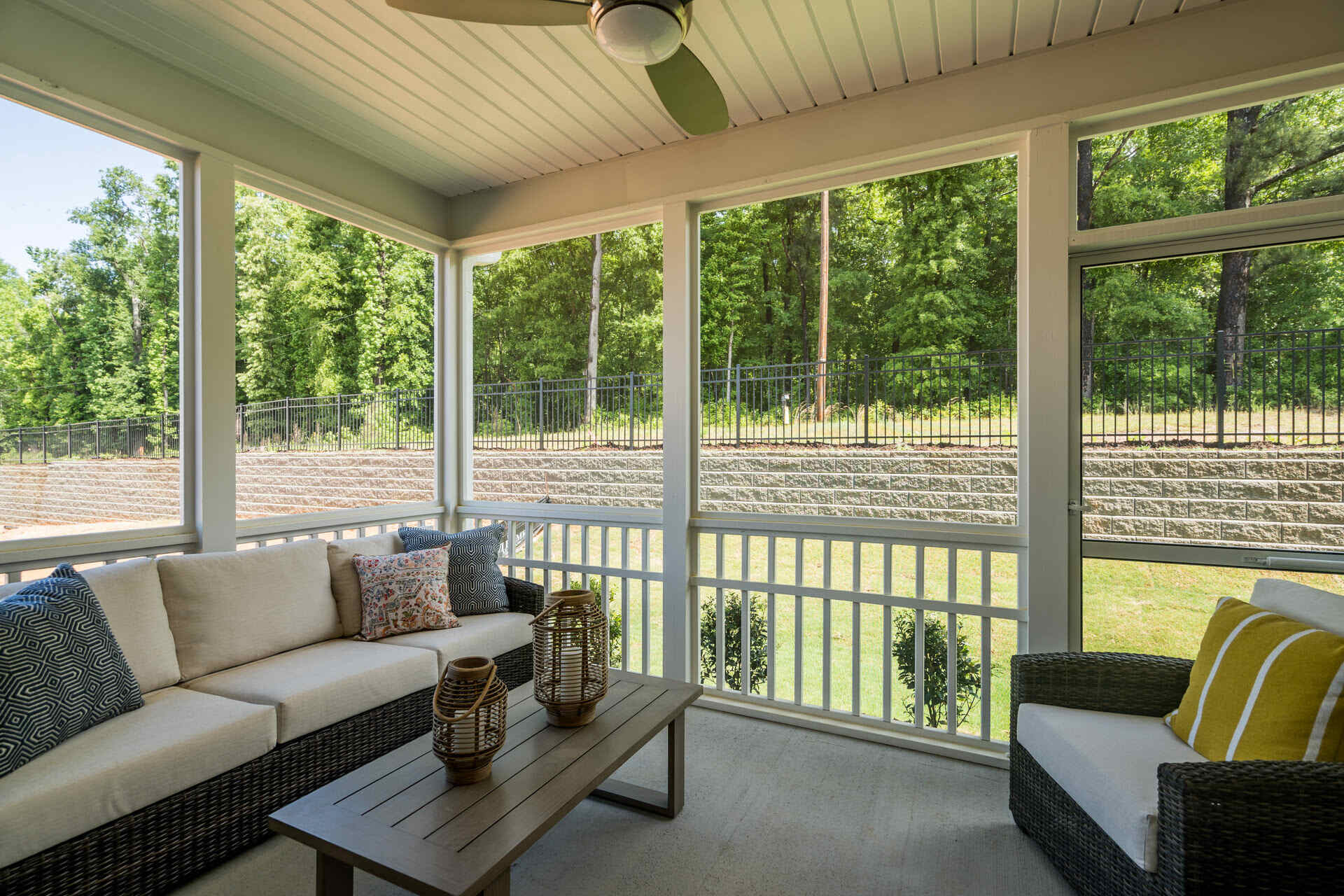
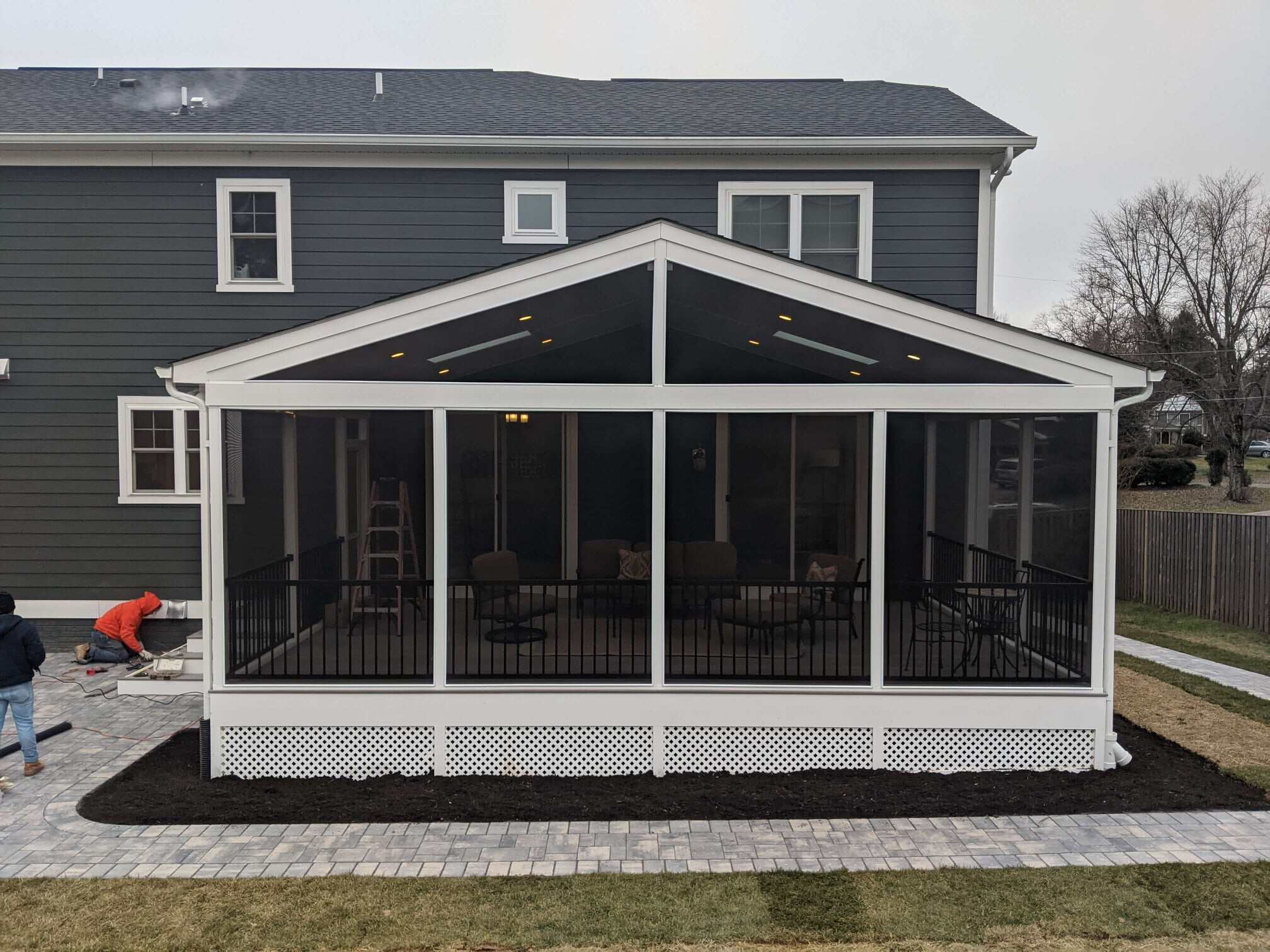

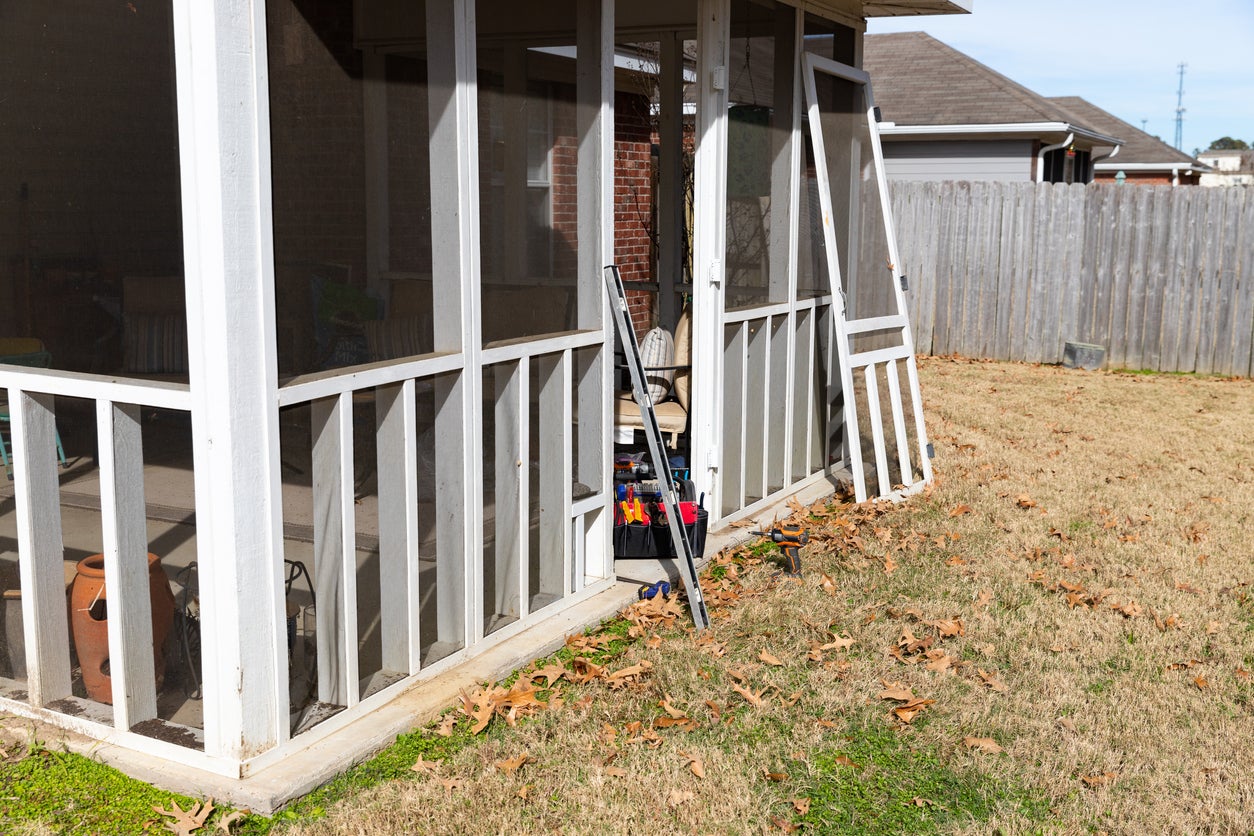
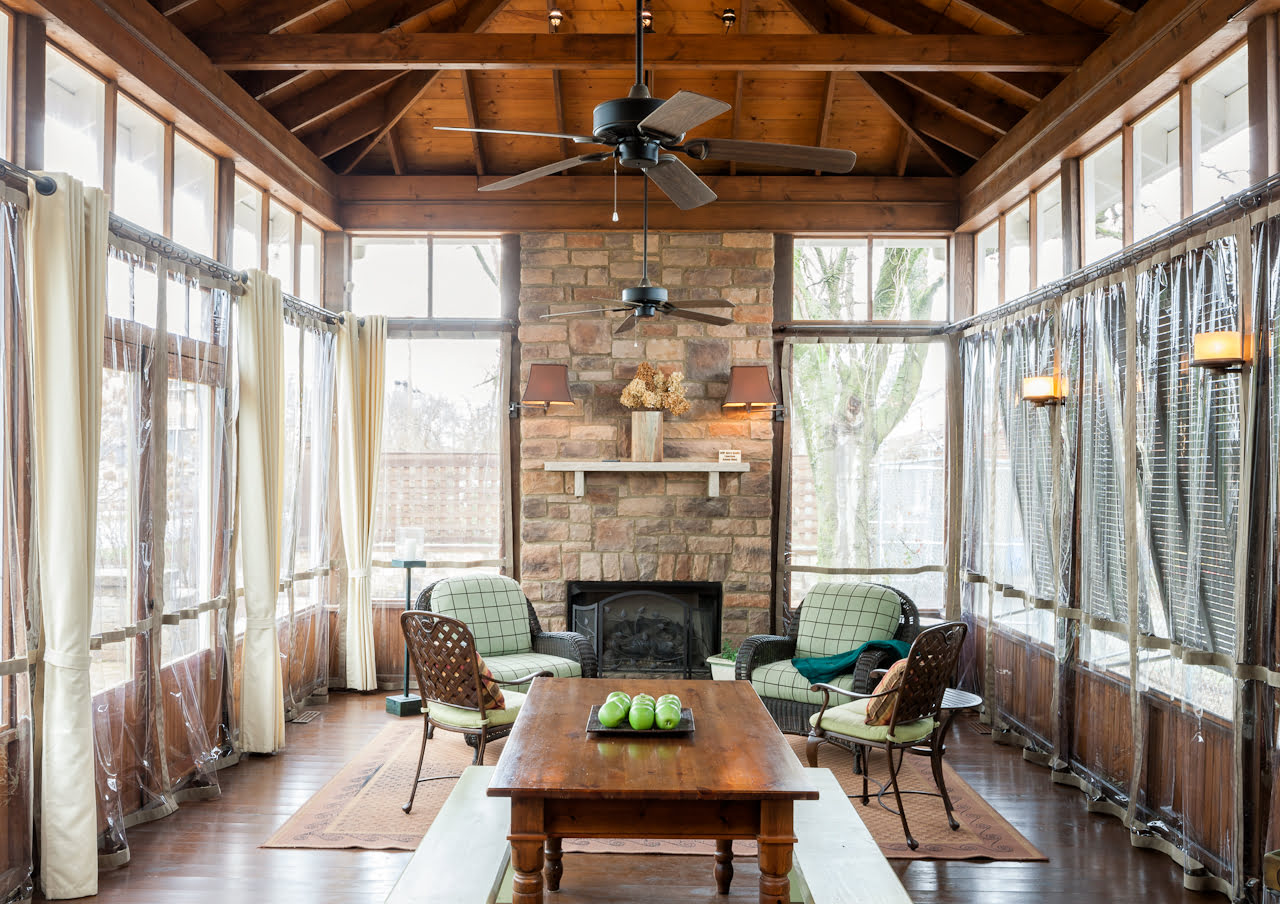
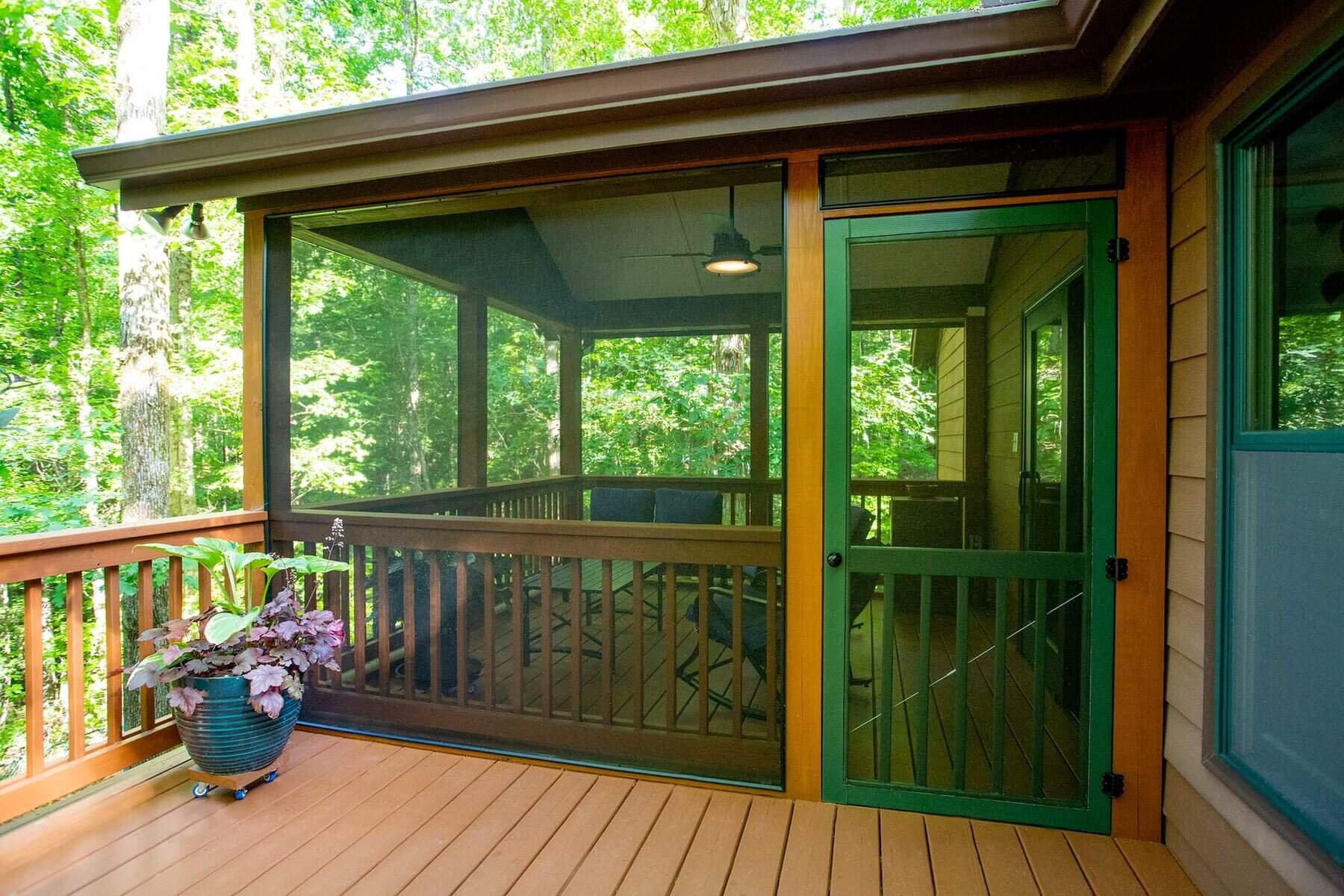

0 thoughts on “What Is The Best Screening Material For Porch”